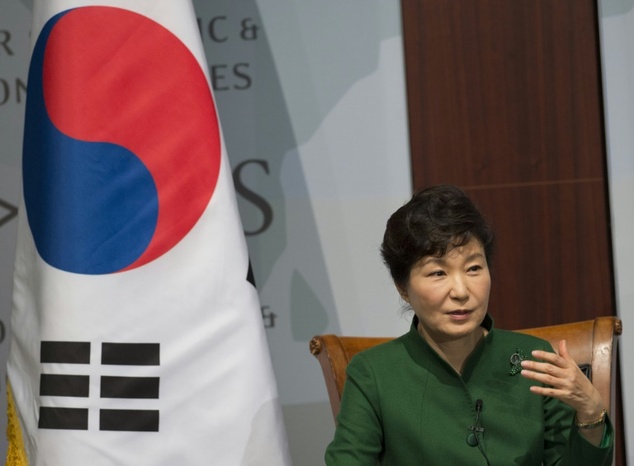Press Release

The defence ministers of South Korea and Japan will meet in Seoul next week, officials announced on Friday – a further sign of improvements in the troubled relationship between the two U.S. military allies.
The biggest step could come in a matter of weeks with President Park signalling she might hold a long-avoided summit with Japanese Prime Minister Shinzo Abe.
The Genron NPO of Japan, The Chicago Council on Global Affairs of the United States, the East Asia Institute of South Korea and the Horizon Research Consultancy Group of China surveyed 7,000 citizens about their perceptions toward Asia.
South Korea has held the position that Japan has not done enough to atone for the suffering of comfort women, while Japan believes it has expressed remorse and offered appropriate reparations.
In Washington, Park said she was open to meeting one-on-one with Abe on the sidelines of the trilateral summit with China.
US government officials were unhappy about Park’s attendance at a military parade in Beijing in September that China claimed was a commemoration of the 70th anniversary of its victory in the war with Japan.
In order for a summit with Abe to be “meaningful”, timely progress was needed on the comfort women issue, Park said, stressing that only 47 of the women were still alive.
According to the South Korean defence ministry, Han and Nakatani will focus on cooperation in the face of North Korea’s nuclear threats. Yonhap reported Carter instead suggested ways of cooperating with South Korea on the 21 other types of technologies that could be transferable. Cooperation with Japan, which had excellent capabilities for detecting submarines, will be increasingly necessary.
In response, Han stressed that Japan’s defense policy should be implemented in the direction of contributing to peace and stability in Northeast Asia. However, actually improving bilateral relations will be hard. Members of the ruling Saenuri Party rushed to Hwang’s defense, noting that the prime minister was speaking specifically of a situation in which South Korea’s 37,000 Japanese residents were in danger. The Japanese and South Korean governments are in a tug of war over the details of the meeting, such as the agenda and its duration.
Still, she said truly mending ties would require substantive progress on the issue of Korean women trafficked to Imperial Army brothels before and during World War II – one of the most painful problems dividing the two countries – before any significant progress can be made in ties.